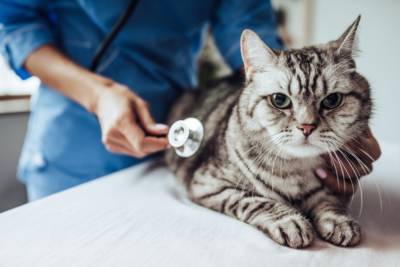
Cats are wonderful pets, but like all animals, they can suffer from various health issues. Some of the most common ailments for cats include:
-
Dental issues: Dental problems are among the most common health problems in cats. They can suffer from tartar buildup, tooth decay, gingivitis, and periodontal disease, which can cause pain, bad breath, and difficulty eating.
-
Urinary tract problems: Cats are prone to urinary tract infections, bladder stones, and blockages, which can cause painful urination, blood in the urine, and even kidney damage. Male cats are especially at risk for blockages, which can be life-threatening if not treated promptly.
-
Parasites: Cats can pick up a variety of parasites, including fleas, ticks, ear mites, and intestinal worms. These can cause itching, skin irritation, and even anemia or other serious health problems if left untreated.
-
Respiratory infections: Cats can contract respiratory infections, such as feline herpes virus or feline calicivirus, which can cause sneezing, coughing, and fever. These infections can be especially dangerous for kittens and older cats, as their immune systems may not be as strong.
-
Obesity: Many cats are overweight or obese, which can lead to a range of health problems, including diabetes, joint problems, and heart disease. Maintaining a healthy weight through proper diet and exercise is crucial for your cat's long-term health.
-
Allergies: Cats can be allergic to a range of environmental and dietary factors, including pollen, dust, and certain foods. Symptoms may include itching, skin irritation, and respiratory problems.
-
Eye problems: Cats can develop a range of eye problems, including infections, cataracts, and glaucoma. Symptoms may include redness, discharge, and difficulty seeing.
-
Cancer: Cats can develop various types of cancer, including lymphoma, leukemia, and skin cancer. Symptoms may include lumps or bumps, weight loss, and changes in appetite or behavior.
-
Arthritis: As cats age, they can develop arthritis, which can cause stiffness, pain, and difficulty moving. Proper diet, exercise, and medication can help manage this condition and improve your cat's quality of life.
-
Kidney disease: Older cats are at risk for kidney disease, which can cause dehydration, weight loss, and changes in urination habits. Regular check-ups and monitoring of kidney function can help catch this condition early and manage it effectively.
It's important to monitor your cat's health and behavior, and seek veterinary care promptly if you notice any signs of illness or discomfort. With proper care and attention, you can help ensure your cat stays healthy and happy for years to come.
